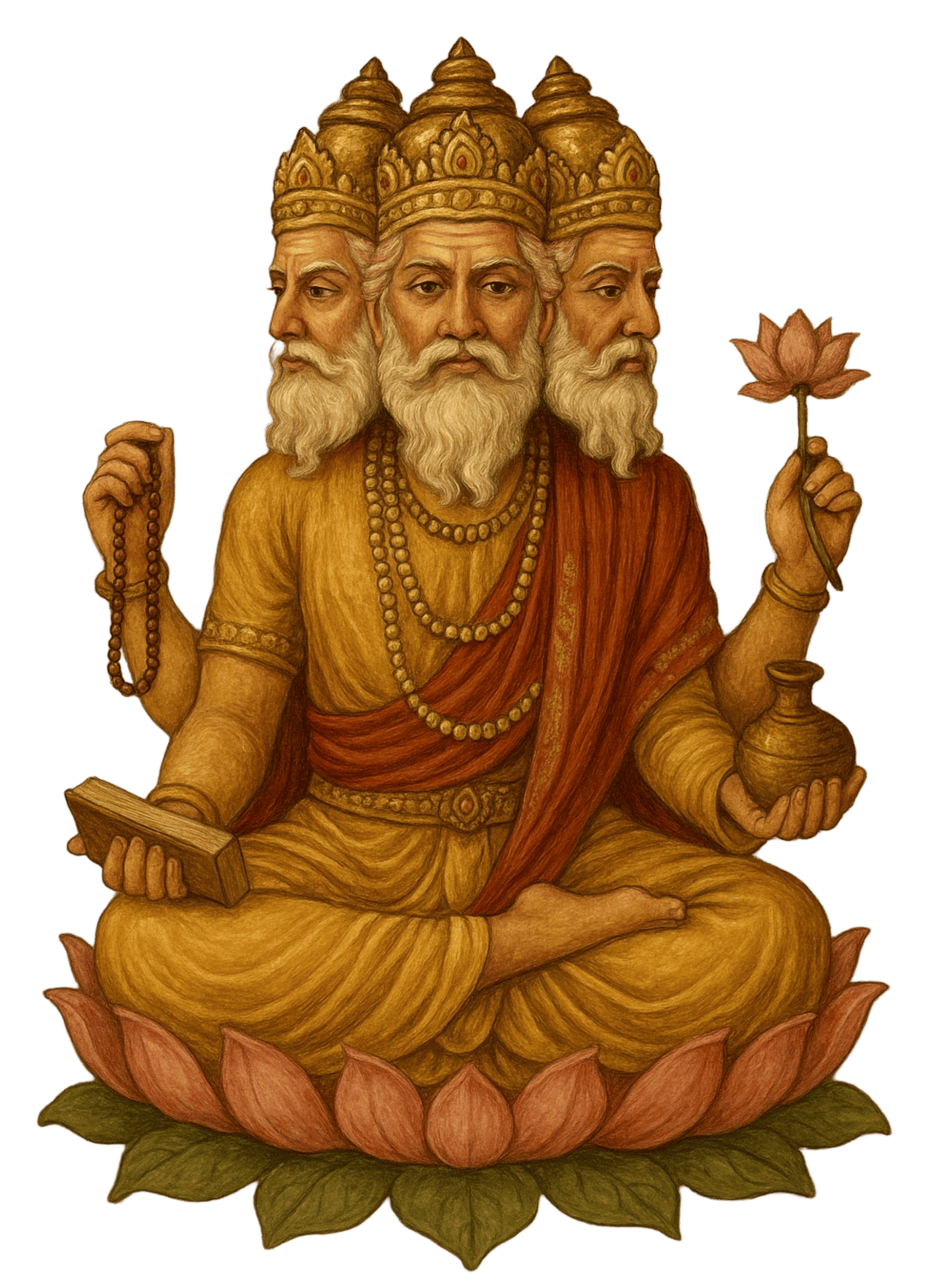
BRAHMA PART I
Brahma is known to be the first aspect of Ea in the sacred trinity known as the Trimūrti, included Vishnu and Shiva.
He is often described as the “Creator of life, matter, time and space.”
This statement is partially true, but some nuances must be understood. Ea, is not the creator of the universe or time, but Life herself is. In the actions of this trinity, Ea plays the role of life and her eternal cycle.
He represents her throughout those aspects and how to understand Her at our level of consciousness.
But Ea is also a co-creator of Life. He supports and accompanies Life in the adventures and destinies she writes. He is also a creator of races; he set up planets by bringing different plants and species in a very harmonic way. His knowledge and intelligence allows him to create real Eden.
Brahma also has a crucial role for us to understand that the power of creation must be well understood and used.
There are many stories concerning brahma. But one of them is very interesting and shows us that arrogance should not be the root of our creations.
“In early days of the universe, during the age known as Satya Yuga, the cosmic order had just begun to unfold. The three great forms of divinity - Brahma the creator, Vishnu the preserver, and Shiva the transformer were each engage in their sacred roles. Among them, brahma had been given the task of bringing existence into being. With the power of thought and divine will, Brahma had created countless worlds. He gave form to Gods, Humans, Animals, Plants and even time itself. From his four faces emerged the sacred Vedas, and every direction echoed with the mantra that flowed from his mouths.
In his eyes, he was the origin of all that existed - a being unmatched, the very source of creation. As ages passed, this immense creative power slowly gave rise to a subtle pride. A quiet arrogance began to take root in his heart. He began to see himself not just as the creator, but as the supreme force, greater even than those who preserved or transformed his work.
One day the celestial sage Narada visited Brahma in his shining abode of Brahmaloka.
Narada, wise and deeply spiritual, had just returned from Vaikuntha, the luminous realm of Lord Vishnu. Thought respectful in manner, his words spoke of the glory, peace, and unmatched spiritual radiance of Vishnu’s domain. He described the compassion and vastness of Vishnu’s being, qualities that deeply stirred something within Brahma.
Pride, already simmering, now turned defensive. A sense of rivalry began to awaken in Brahma’s heart. He reflected on his own achievements - the Vedas, the Gods, the very world - and questioned why anyone else, even Vishnu, should be praised above him. He began to believe that the act of creation was the highest of all divine tasks, greater than preservation or destruction.
That night, as Brahma sat in deep meditation, something unusual began to unfold. Slowly he started forgetting the very names of the gods he had created. The verses of the Vedas ceased to emerge from his mouths. The mantras that had once flowed effortlessly now broke into stutters. Confusion gripped him.
Soon, the divine beings and elements he had brought into existence began to vanish. The Rishes, celestial creatures, even the stars of his realm - one by one, they disappeared. Brahmaloka, once vibrant and full of life, began to fall silent and empty. Brahma was overwhelmed with fear. For the first time, he felt powerless in the face of his own unraveling creation. He could not understand why everything he had brought forth was fading into nothingness.
Then amidst this chaos, Lord Vishnu appeared in radiant form, calm and compassionate. In vishnu presence, the panic within Brahma dissolved into realisation. The dissolving of his world was not an illusion - it was a refection of a deeper truth.
Creation, vishnu revealed, could only thrive when rooted in humility. The moment arrogance enters, the harmony of the cosmos begins to fall apart. Brahma has mistaken his role for supremacy. But the univers is not sustained by haughtiness; it is balanced by dharma - the eternal law. Vishnu reminded him that no part of the divine is greater or lesser. Without transformation, creation would stagnate. Without preservation creation would crumble.
The three forms - Brahma, Vishnu, and Shiva - existe together, not in rivalry but in balance.
Humbled, brahma bowed inwardly. He saw clearly now that his creations were never for his own glory. They were not extensions of his ego, but expressions of the divine will. He had been chosen as a channel, not as a ruler. With this awakening, Vishnu restored what had been lost. The Vedas returned to Brahma’s mouths. The celestial sages, gods, and realms of existence were once again visible. But Brahma himself was changed forever.
He now sat in silent meditation, not with the pride of a creator, but with the humility of a servant to cosmic law. His wisdom had deepened, and his heart, once filled with weight of “ego”, now beat with gratitude and “surrender”. The creator learned that true greatness lies not in making the universe but understanding one’s place within it[…]”
This story tells us the importance of not letting ourselves be derived from the powerful gift we have obtained from our father Ea.
We have in us a great power through our souls, but it must not be used the wrong way, out of over-pride, or pure selfishness. In my opinion, it should be used to bring more value to Life, and sharing the knowledge and gifts in order to help others grow and elevate themselves is of great reward.
Another point that needs a bit of clarification is the word “pride” used in the text.
As it feels that being pride is something negative. On the contrary, having pride in creating or doing things that we like is something important.
I think another word should be used in this story and this is why I have changed it to “arrogance or even haughtiness”.
Being satisfied and happy with the task we are taking on is a great thing. The “danger” would rise if we are so pride of what we have done that we no longer put effort in order to keep evolving and renewing our creative process.
As well mentioned in the text, stagnating over our creation, not allowing any transformation to evolve is something in total contradiction with the principle of Life. Again well taught by the great God Ea.
In that sense, Brahma was lying on his power, and instead of being willing to create he started an unnecessary rivalry with the others, that are in fact part of a natural cycle; thus, his creation started to fade away.
In the text I have put the word haughtiness in italic in the same manner as the word pride; the original word was “ego”. This word has sadly become a negative expression with the rise of the new age current. Unfortunately this serves well the bad evil hands of you know who.
The ego is in fact one of the most important things we have! It allows us to fight for the dreams we have. It helps us to defend ourselves when we are confronted with adversity. The ego is the part of us who doesn't let others walk in our personal boundaries.
It is throughout the Ego that we are capable of creating and live our emotions fully.
There is this idea “to kill the Ego”. Or in other words become fully slaved to the world of Anu and his rotted ideas and desires for the humanity. Transforming us into robots. Fully compliant and far away from claiming our freedom.
I hope this article will give you more insight into the approach of Ea-Brahma. There are more stories about Brahma, but I have found this one very interesting to share. There is obviously way much more to say but I will take this on a part two. Where we will dive into another story including brahma.
Glory to Ea
Glory to Life
Glory to the goddesses and gods from Orion.
The text story is from a transcription from a YouTube channel:
Full Story Of Brahma - Birth, Powers, Curses and Interesting Facts!
https://www.youtube.com/watch?v=gWMaEJfhXgg&t=44s
